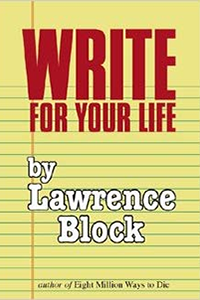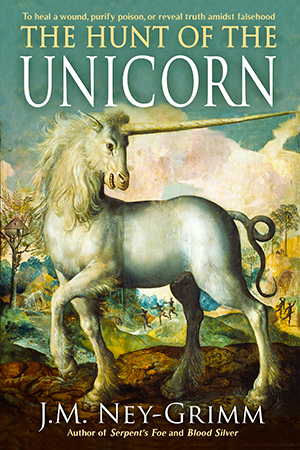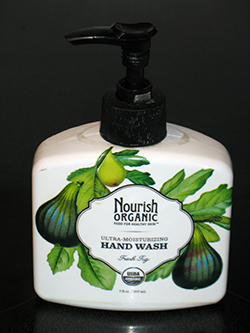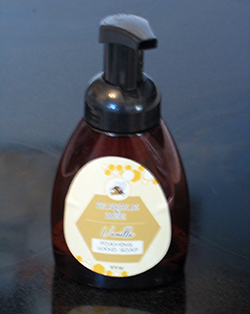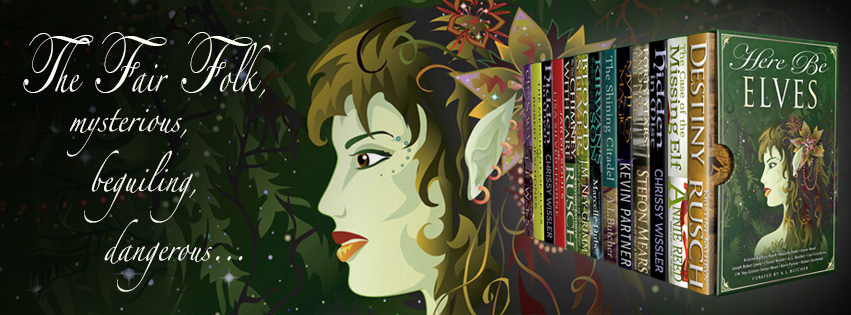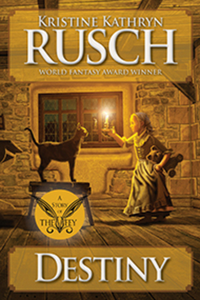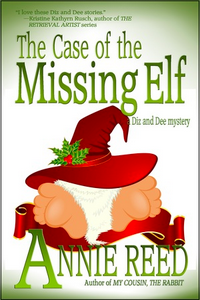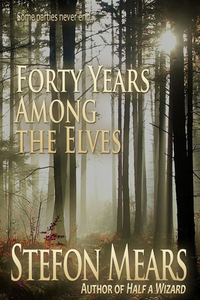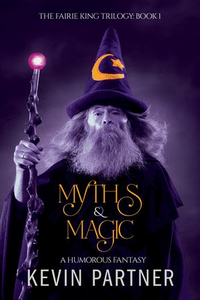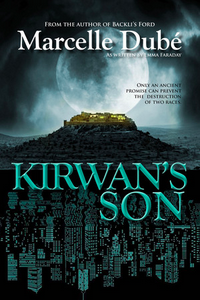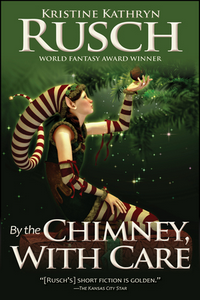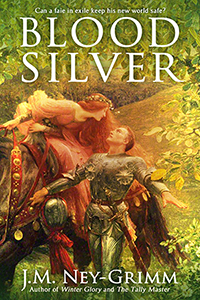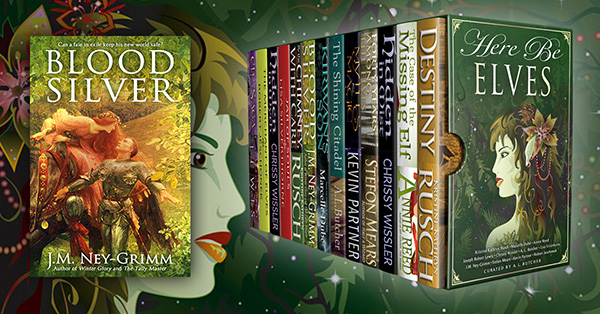Arnoll! Arnoll was the thief?
It was impossible. If any troll within Belzetarn could claim integrity, it was Arnoll. He told no lies. He avoided pretense and poses. He befriended those in need. He’d befriended Gael for no reason Gael could see, those seven years ago. He defended those who needed defense. He’d defended Gael.
Gael’s thief absolutely could not be Arnoll.
And yet, there Arnoll sat, examining an ingot of tin that he should not possess.
Gael’s feet felt glued to the stone floor, while his heart hammered.
He wanted to turn around, to retrace his steps—through time, as well as space—to go back to the moment before this one. To return to his chambers and not leave them. To avoid this instant of discovery altogether. To never see Arnoll holding the tin ingot. To not lose one more friend. To not be betrayed.
Gael stepped forward.
Arnoll looked up. His curly hair, iron gray, emerged from shadow, and his face lightened, losing the demonic aspect conferred by his frown and the lighting. He held the tin ingot out to Gael. “Look at this,” he directed matter-of-factly. “What do you make of it?”
Gael’s heartbeat slowed, and he tamped down his consternation. Of course there would be a reasonable explanation. Arnoll was exactly as he presented himself: trustworthy, solid, steadfast. Gael was a fool to even consider otherwise.
He took the ingot in his hand and immediately knew why Arnoll had perceived something amiss with it.
The flat rim, roughly two fingers in width, lay cool and smooth against Gael’s palm, filling it. The hollow pyramid rose at the normal angle from the rim, a dull and silvery gray, not yet darkened from its fresh forging to the blacker hue of old tin. The flat top was properly square. The ingot looked entirely normal, and it possessed the correct heft, neither too light nor too heavy.
But the metal was too thin.
Not by a lot. Not enough for an inexperienced troll to notice, perhaps. But to a smith or to one who tallied metals, it was significant. Belzetarn’s ingots of copper, tin, and bronze all weighed the same—one pound—and possessed identical width, length, and height. But the thickness of the sheet forming the ‘hat’ shape of the ingots varied. Dense copper was thinnest. Bronze, just a hair thicker. And tin—light and rare—was thickest of all.
This tin ingot possessed the thickness of a copper ingot. And Gael wanted to know why.
“Did someone use the wrong mold?” he asked, without really thinking.
“That would be the preferable explanation,” said Arnoll, his voice taking a sardonic tone. “But, no.”
Arnoll knew something Gael didn’t, evidently.
“What is it?” asked Gael.
“Look at it with your inner sight,” said Arnoll.
Gael’s calming pulse quickened again. Anything in Belzetarn involving energea posed the potential for unwanted complication. Gael especially wanted no complications in the smithies or, by extension, in his tally room. But complications were almost guaranteed, once he’d discerned the thefts of tin and bronze. He was awash in complications.
With almost as little preparation as the physician he’d observed in the afternoon, Gael closed his eyes and opened his inner gaze.
As he expected, a lattice of energea, criss-crossing to form diamond shapes, vibrated within the metal. But the diamonds were smaller, more closely packed than those of tin, while their vibration was less rapid than it should be. Small flickers of green shimmered within the lattice.
Someone had used energea to tamper with this ingot.
Gael compressed his lips. How dare anyone defile his tin. He reached for power within his heart node, guiding silver sparks along his arcs, and pushing them through the ingot, where they caught the green flickers and drew them out of the metal.
Arnoll cursed. “Cayim’s hells!”
Gael closed his inner gaze and opened his eyes.
The ingot resting in his palm now looked like what it was: an ingot of copper, warm-hued and shiny.
“Gaelan’s tears,” said Gael blankly.
He set the ingot down on the counter.
“Do you have any idea who might have done this?” asked Arnoll.
“No,” said Gael, even more blankly. He could imagine all sorts of reasons that someone might steal tin. It was valuable. But why in the north would anyone want to make an ingot of copper look like an ingot of tin? Something very strange was happening amongst Belzetarn’s metal stores.
“Neither have I,” said Arnoll. “Which was why—I did steal this ingot, Gael. And I hadn’t planned to tell you.” The smith grimaced and gestured at the ingot. “But you needed to know this.”
Gael’s teeth set hard. “Why?” His tone held an equally hard edge.
Arnoll did not mistake the direction of Gael’s question. The smith’s gaze fell, not in shame—because his face was just as set as Gael knew his own must be—but in some other uncomfortable realization.
Gael swallowed. What distressing revelation would come next in this string of bad to worse?
Arnoll looked up. “This is not my secret. Which was why I planned to keep you unknowing of it. But in the circumstances”—he nodded at the copper ingot—“you need to not have my theft mixed in with whatever else is going on.”
Arnoll settled more securely on his tall stool.
Gael glanced around, saw a stool around the counter’s corner, and snagged it to sit himself. If Arnoll was going to confess to stealing . . . Gael needed to be seated. This would not be pleasant hearing.
Arnoll nodded, grimly, and began. “The march sponsored me in Belzetarn thirty years ago. He was not the march then, of course, just one of the opteons. One of the better ones.” Arnoll’s lips straightened. “Ylian would have executed me else.”
“You?” Gael couldn’t imagine any regenen ordering Arnoll’s death.
“I held the same standard you did when you arrived here. I would not betray the unafflicted.”
“Dreas convinced you otherwise?” Gael knew that currently Arnoll believed trolls deserved protecting—thus his peace as armor smith—even while he also held that men deserved better than war with the troll horde. Gael could not slice his own loyalties so finely, but he understood Arnoll’s point of view.
“No,” answered the smith. “Dreas promised to secure me a post in which I would do no direct harm to Belzetarn’s enemies.” Arnoll sighed. “He kept that promise, not only at the beginning, but through the years.”
Gael could see where this led. “You owe him.”
“I owe him,” agreed Arnoll.
“But why tin? You thought it was tin, didn’t you?”
“The march’s troll-disease is advancing,” said Arnoll.
Gael’s belly felt abruptly cold. The truldemagar did advance. That was its nature. And in a citadel of trolls, there would always be a troll in whom it had advanced too far. But one didn’t like learning of it. And one especially didn’t like learning of it in a troll so key as the march.
“Seriously so?” asked Gael. “Requiring an end?”
“Not yet,” said Arnoll. “But Dreas sees his end, more clearly than before. And he wants to delay it. Not for himself, he says, but for Carbraes. Carbraes needs him. He says.”
Gael understood that. Carbraes and Dreas had held one another’s backs for decades. Dreas would not trust another to do so as faithfully as himself. But death waited on no one’s will, and the truldemagar less so than many hardships. How did Dreas think he could delay it?
“The march plans to follow Fuwan’s path,” continued Arnoll.
Gael’s cold belly grew colder yet.
Fuwan had been Belzetarn’s magus before Nathiar. Nathiar was already installed as magus when Gael arrived, but Gael had heard the stories. Fuwan was the oldest magus the citadel had ever possessed, and his body had shown it: spine so curled he could not stand straight, but craned his neck upward from his half-bent stance; ears so enlarged that the lobes brushed his shoulders; skin and eyes so yellowed he should have been too sick to climb out of bed.
Despite his physical deformities, Fuwan’s mind stayed clear and sound, most unusually so. But when his madness came, it came suddenly and thoroughly. One of Belzetarn’s outposts was a slagged heap of stone, melted by Fuwan’s potent and destructive energea in his death throes.
“There’s a way to follow Fuwan?” Gael demanded. “Why would Dreas want such an end? Why would you help him to such an end? Slaying hundreds of trolls—many of them young boys, no doubt—in his final conflagration? Arnoll—”
Arnoll gripped Gael’s forearm. “Hear me out,” he said.
Gael settled back, nodded.
“Dreas found Fuwan’s notes, which included his predecessor’s researches,” Arnoll explained. “Small amounts of tin ingested daily retard the truldemagar madness, but bring it on more violently when at last it comes. Dreas—eating powdered tin every morning, when he broke his fast—would outlast Carbraes. There would be no final conflagration for Dreas. Once Carbraes was gone”—Arnoll drew the edge of his hand across his throat, mimicking a knife on tender flesh—“Dreas would depart as well. By his own hand.”
Gael felt sick. The more he delved into the arrears in his tallies, the uglier it got. He could see where Arnoll’s story was going.
Gael spoke his thoughts aloud. “If Carbraes knew the march’s intention, he would forbid it. I can hear him now: ‘No troll knows the ultimate path of his disease. Let us take our chances, old friend, and live it as it comes.’ And while Dreas is willing to act against his regenen’s probable wishes, he’s not willing to disregard his expressed request.”
Gael shook his head, his lips twisting a little. “Thus, secrecy. Thus, you.” He glanced irritatedly at Arnoll. “And, thus, theft. Hells, Arnoll.” He felt disgusted, even while he sympathized.
Arnoll nodded. “That’s it in a nutshell.”
Gael’s breath huffed out. Where in the hells was he going to go with this? He’d located a thief, but not the thief who taken the ingots missing from yesterday’s tallies. Or had he?
“Was this the first ingot you stole from me?” he asked.
Now Arnoll looked exasperated. “This is the only ingot I’ve stolen. Ever. And I will not take another. I’ll ask you for the next straight out.”
Gael stared at Arnoll staring back at him.
“I understand your position,” he said finally. “But I don’t like the choice you made.”
Arnoll’s eyes continued to meet Gael’s. “I didn’t expect you would.”
Gael’s anger ebbed. Conflicting loyalties were unavoidable in Belzetarn. Or anywhere, really. He’d avoided splitting his own—thus far. But that assessment held true only if he kept his vision sufficiently narrow. Looked at with a wider gaze, Gael’s mere presence in Belzetarn represented a serious split in his faith—especially his presence as secretarius, the one who ensured that the warriors possessed weapons. He was loyal to Carbraes. Truly. And, yet, he remained opposed to the troll horde and still hoped for their ultimate defeat by the unafflicted.
Gael avoided thinking about that wider view, and now was not the time for it. He held the tin vault’s contents in trust for his regenen. He needed to decide how he would slice his loyalty within Belzetarn, between Carbraes and Arnoll.
Except that was already a given. He would never betray Arnoll, no matter how his loyalty to Arnoll nibbled at Carbraes’ interests.
Meeting Arnoll’s gaze again, he said, “Thank you for telling me. I’ll give you an ingot of tin—one untampered with—tonight.” And he would tally it properly.
“You’re missing other ingots?” asked Arnoll.
Gael nodded.
“And now this.” Arnoll gestured at the ingot of copper that had borne the semblance of tin.
“Yes.” It was three hells of a tangle. “Help me search the privy smithy. I doubt any ingots were accidentally kicked behind an anvil or under a counter, but you know Martell.”
Arnoll snorted. The armor smithy being adjacent to the privy smithy, Arnoll did indeed know Martell. And Arnoll was no fool. He likely sensed as surely as did Gael that something sinister stirred amongst the trolls of Belzetarn.
Next scene:
The Tally Master, Chapter 6 (scene 29)
Previous scene:
The Tally Master, Chapter 6 (scene 27)
Need the beginning?
The Tally Master, Chapter 1 (scene 1)


